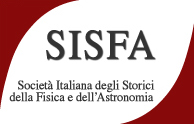Speaker
Description
Created during the French Revolution to “regain control of the seas from the British”, the Bureau des Longitudes still exists nowadays. Initially composed of ten members (2 surveyors, 4 astronomers, 2 ex-navigators, 1 geographer and 1 'artist'), it functioned as a small “academy of astronomical sciences” (covering fields such as celestial mechanics, cosmology, metrology, physical and earth sciences, geodesy, etc.), acting as a spokesman for French science and technology for the international scene. However, its history remains little known to the public and even to historians.
Research carried out within the framework of the ANR (French funding agency for project-based research) BDL 1795-1932 project, which ended at the end of March 2022, has made it possible to enhance the archival corpus of meeting minutes: 21,602 sheets with their full transcripts now available on a dedicated website (http://bdl.ahp-numerique.fr/). These archives retrace the life and activities of the Bureau week by week, contain the correspondence and technical-scientific dossiers submitted to it, some of which are unpublished. These archives are exceptionally rich, allowing us to follow the activities and evolution of science between professionalisation and patronage, confrontation with peers and personal relationships.
In this talk, I aim to consider the traces of 'Italians' (i.e., unified Italy) in the minutes of the Bureau des Longitudes. Who are they? Why mention them? What can we learn by studying their traces? By dwelling on a few emblematic cases, I will show the depth of these archives and highlight the possibility of developing research in the history of science from a perspective taking more into account different societies and cultural contexts.

